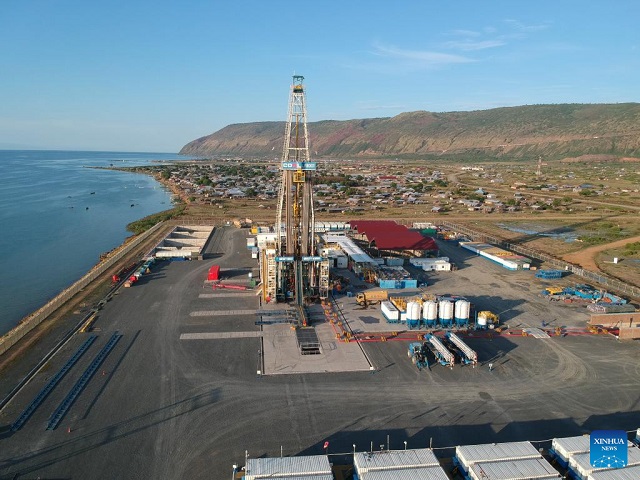
However, delays in project execution, limited resources, red tape in contract approvals remains big concerns
Kampala, Uganda | JULIUS BUSINGE | Uganda’s private sector has welcomed the government’s decision to significantly increase the budget allocation for the mineral development and oil and gas sub-sectors but has voiced concerns over implementation.
In the latest national budget, the government has increased the resource envelope by 92% to Shs961 billion for FY2024/2025 to bolster key projects and harness sector growth.
“The increase in the sector’s budget shows the government’s commitment to harnessing value from the extractive sector to drive socio-economic transformation,” said Humphrey Asiimwe, the chief executive officer of the Uganda Chamber of Mines & Petroleum, a not-for-profit private sector association started in 2010.
However, the private sector has voiced concerns over persistent challenges, including delays in project execution due to a lack of legal and regulatory frameworks, limited resources, bureaucratic red tape in contract approvals, and investment license issuance.
They have called on the government to establish a National Content Fund to address the high interest rates that hinder investor participation in the sector.
Oil & gas allocation
The oil and gas sub-sector’s budget has nearly doubled from Shs447 billion in FY2023/2024 to Shs920 billion for FY2024/2025. This allocation will support the continued development of the East African Crude Oil Pipeline (EACOP) project, the procurement and dissemination of 57,000 Liquefied Petroleum Gas (LPG) cylinders to promote clean cooking, and the establishment of the Petroleum Geoscience Laboratory. Additionally, funds have been earmarked for the equity contribution to the Refinery Project.
On the other hand, the budget allocation for mineral development has been reduced from Shs54.4 billion to Shs41 billion. The new allocation will primarily focus on fast-tracking quantification and market studies for all minerals to attract investors, operationalizing the National Mining Company, reviewing and strengthening the fiscal regime for minerals, including the regulation of artisanal and small-scale miners, and developing the e-government mineral production system and data bank.
Additional priorities include commencing construction of the Busia and Moroto beneficiation centers, strengthening the Ntungamo and Fort Portal centers, and facilitating private sector participation in exploration, mining, and value addition to minerals.
The new Mining and Minerals Act 2022, which aims to formalize artisanal miners and establish a mining company to represent the government’s interests, will guide the sector’s development Uganda possesses large, underexploited mineral deposits, including gold, copper, high-grade tin, tungsten/wolfram, salt, beryllium, cobalt, kaolin, iron ore, glass sand, vermiculite, phosphates, uranium, and rare earth elements.
Last financial year, the government recorded various achievements, including the delivery of 500 km of pipeline for EACOP in Tanzania and the commissioning of a thermal insulation plant in Tabora, Tanzania.
The government also issued two new exploration licenses to the Uganda National Oil Company and DGR, an Australian-based company. The Upstream Petroleum Project advanced with drilling works at Kingfisher and Tilenga in preparation for oil and gas production.
Further, the government achieved full geological mapping using airborne and ground geophysical technologies as the National Mining Company was incorporated to manage investment and trading in minerals on behalf of the government among others.
 The Independent Uganda: You get the Truth we Pay the Price
The Independent Uganda: You get the Truth we Pay the Price



